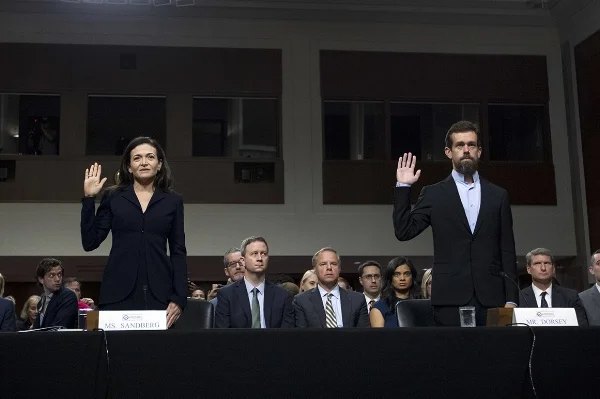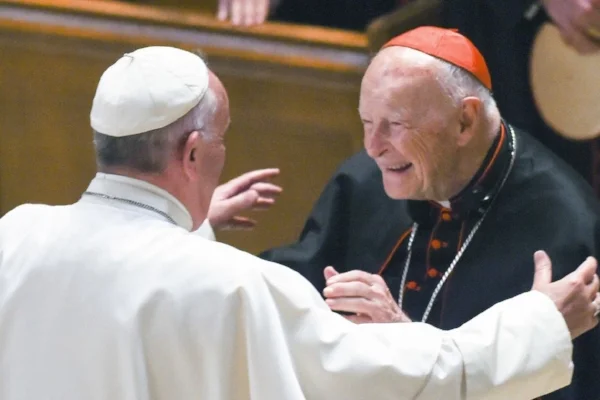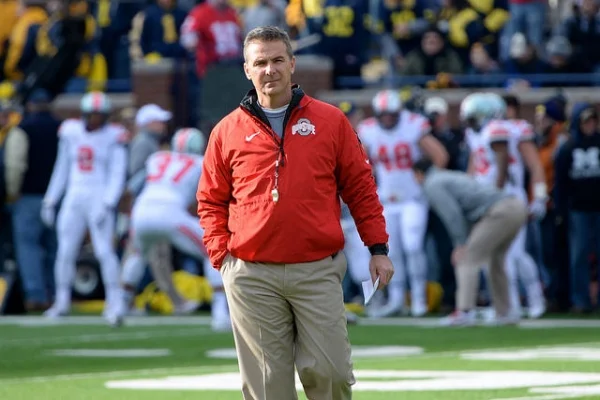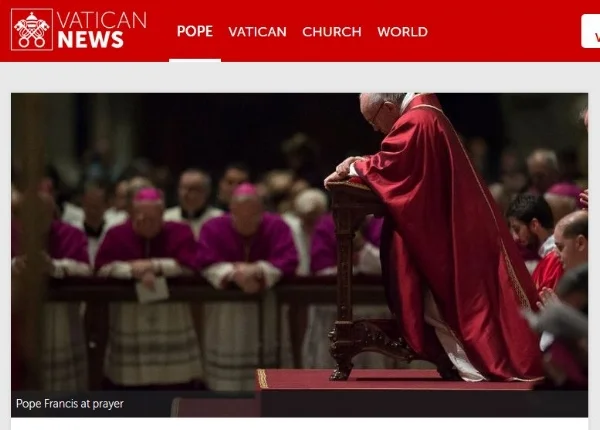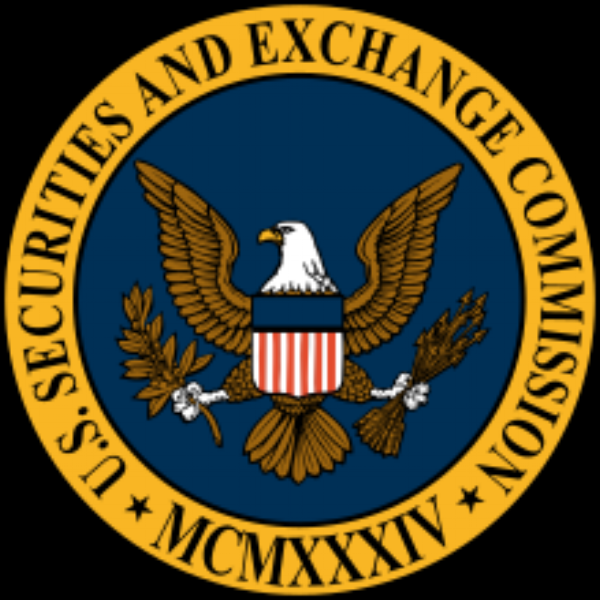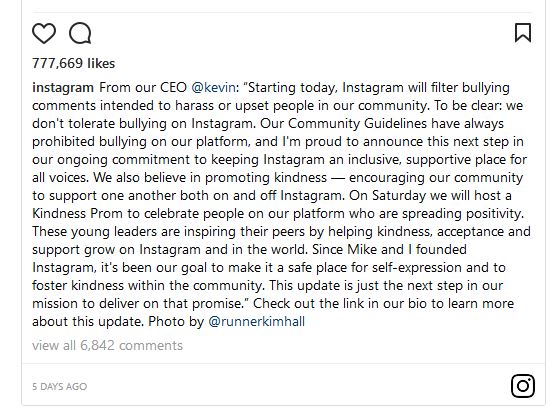Disneyland Employees Speak Out
Disney employees are on screen in a New York Times op-ed video, "I Work at the Happiest Place on Earth. Why Can’t I Pay My Rent?" A 30-year concierge and a cosmetologist are featured more prominently. One is currently living in her car, and another says, tearfully, that she has spent time in her car. Both say they love their jobs, but along with 75% of Disneyland employees, they can't afford to pay "basic expenses every month." Data comes from a questionnaire and report, "Working for the Mouse."
The argument is for Disney to pay a living wage, and the call is for citizens to vote for an Anaheim proposal that affects Disneyland employees and some local hotel workers. In the video, one claim is that real wages have declined because of inflation—what $15 per hour bought seven years ago isn't the same today.
Business leaders who are fighting the measure say that the increase would hurt jobs. One local Chamber of Commerce member argued, "We estimate 3-4,000 jobs lost over next year or two by companies having to absorb this new increased cost. They're going to reduce hours and reduce jobs."
Senator and former presidential candidate Bernie Sanders is also featured in the video. He is proposing a bill he calls "Stop BEZOS" to tax Amazon and other large companies for public assistance received by their employees. The idea is for companies with 500 or more employees to pay the government back for support paid to their employees who cannot survive on earned wages.
Discussion:
- How well does the video make the case for higher wages? Which are logical and which are emotional appeals? What evidence is presented?
- Assess the credibility of the questionnaire and report, "Working for the Mouse." From your assessment, what makes the report both credible and questionable? In what ways does the report reflect business communication standards, and in what ways does it fall short?
- Research the impact of raising wages on industry, for example, this Cornell report. What's your view of this argument? It's a complicated question because of different industries, locations, labor supply, rates, etc.
- In what ways do the employees featured in the video demonstrate courage? What risks did they take in appearing on screen?
Twitter Denies Shadow Banning
"Shadow Banning" was a big topic at yesterday's Senate Intelligence Committee hearings with Facebook and Twitter. Twitter CEO Jack Dorsey denied the claim that tweets are suppressed based on political ideology. But he did admit that candidates' tweets were affected in search results.
In a blog post, Twitter executives explained the definition of shadow banning and denied the practice. The post also explains how search results are ranked:
- Tweets from people you’re interested in should be ranked highly
- Tweets that are popular are likely to be interesting and should be higher ranked
- Tweets from bad-faith actors who intend to manipulate or divide the conversation should be ranked lower
The executives confirm a technical issue that prevented Republican politicians tweets from showing up in searches, but they write, "some Democratic politicians were not properly showing up within search auto-suggestions as result of this issue." Like Dorsey, they don't specify numbers affected on each side.
Discussion:
- Assess Dorsey's response to Representative Joe Barton's questions. How well did he respond? How do you assess his delivery skills?
- How well does Twitter take responsibility in the blog post?
- How well does the blog post explain the situation and defend the search results?
President Trump Criticizes Google
In two tweets, President Trump criticized Google and other technology companies of "suppressing voices of Conservatives and hiding information and news that is good." Calling the situation "very serious" and "very dangerous," he claims that "fake" liberal news is elevated in search engines, while "fair" Republican/Conservative perspectives are suppressed.
The president's evidence is based on searching for "Trump News," which he claims resulted in 96% of stories from "National Left-Wing Media." The data came from Lou Dobbs' reporting on Fox Business Network about an "unscientific study" by PJ Media, a conservative organization.
It's also unclear which news organizations Fox and President Trump put in the "left-wing" category. A Wall Street Journal article explains that the president considers even mainstream media outlets to be "fake news," so what he calls unfair representation may not align with a "statistically neutral news aggregator."
Yet the article acknowledged that the search engine algorithm for Google News is "opaque." In addition, Facebook was questioned during Congressional Hearings about suppressing conservative views, and several technology companies did recently close accounts belonging to Alex Jones and InfoWars, a conservative organization, for violating terms of agreement. Social media sites (except Twitter, which has retained Jones's account) provide reasons for closing Jones's account such as his claiming that the shooting at Sandy Hooks Elementary School in 2013 was a hoax.
A spokesperson for Google denies biased search results:
"We continually work to improve Google Search and we never rank search results to manipulate political sentiment."
Discussion:
- Try to find evidence on both sides of this argument: that Google News is unbiased against President Trump and that his claims are unfounded.
- What's your view about Google Search results? How might your own political perspective factor into your view?
- How can you ensure that you're getting the most balanced news possible? (Hint: Don't rely on your Facebook feed.)
Archbishop Calls for Pope's Resignation
As more allegations of sexual abuse within the Catholic church become known, the most senior levels of the organization are facing new challenges. Last week, Pope Francis wrote a letter chastising abusers and calling on the Church to do better. Today, a former senior Vatican, who was an ambassador to the U.S., accused the pope of knowing about and covering up abuse cases since 2013. He is calling on the pope to resign.
The situation involves Archbishop McCarrick, who resigned as cardinal in July. McCarrick is accused of sexually abusing seminarians, and the Pope is accused of "rehabilitating" him rather than disciplining him and removing him from his position.
Archbishop Carlo Maria Viganò explains his reasoning in documented "testimony," including this segment:
Image source of Pope Francis and Archbishop McCarrick.
Discussion:
- Should the pope resign? Why or why not? How does this situation compare to corporate examples? Consider the hierarchy and relationships.
- In what ways is this situation a matter of integrity?
- Viganò uses the word parrhesia. What does this mean, and how does this relate to business communication?
- Which other leadership character dimensions are illustrated by this situation?
Ohio Football Coach: Another Case of Deleted Messages
Ohio State football coach Urban Meyer will forgo pay and the ability to coach three games because of his failure to appropriately handle a staff member's misconduct. A New York Times article chronicles issues with Zach Smith's behavior, including paying $600 at a strip club during a recruiting event, a domestic violence charge, and an affair with a staff member.
During a press conference, Meyer apologized, saying, "I should have done more, and I am sorry for that," and "I followed my heart and not my head."
The Times article also describes a conversation between Meyer and Smith about deleting text messages. I should count the number of stories on this blog since 2010 illustrating that deleting texts and emails fail to get the desired result. These messages are almost always recoverable, and the act of deletion makes the accused look even more guilty.
In addition, in this situation, Ohio State officials at first failed to produce messages requested by the school newspaper. Worse, several staff knew about the request, but no one even approached Coach Meyer to retrieve them.
Discussion:
- Once again, where are the many places deleted messages may be stored? How else can they be retrieved?
- What's your view of the strip club visits? Could Meyer reasonably argue that this is just part of the recruiting process? After all, no students were invited—only university and high school coaches.
- Assess the press conference. How well did university officials, including Meyer, respond to reporters' questions? Did the team appropriately take accountability?
School Policy for "Natural" Hair
An 11-year-old black girl was sent home from school because her hair didn't fit guidelines for "natural" hairstyles. Over the summer, Christ the King Parish School in Terrytown, Louisiana, established a new policy, published in its handbook, banning hair extensions, which Faith Fennidy was wearing.
Videos show Fennidy crying, and critics called the policy discriminatory. But the Archdiocese of New Orleans defended the school's decision:
"This policy was communicated to all parents during the summer and again before the first day of school, and was applied to all students.
"The school offered the student's family an opportunity to comply with the uniform and dress policy and the family chose to withdraw the student; the student was not suspended or expelled."
A representative for the school also said, "We remain committed to being a welcoming school community that celebrates our unity and diversity." Fennidy decided not to return to the school.
Discussion:
- What's your view of the policy? Do you find it appropriate, discriminatory, or something else?
- How do attire policies in companies compare? What examples of similar policies have been problematic for companies?
- Read more about the situation on BusinessInsider. How well did the school handle the situation? What, if anything, could have been done differently?
Pope Francis's Letter
Pope Francis has joined the conversation about sexual abuse in the Catholic church after 1,000 victims and 300 perpetrators were identified by a grand jury investigation report in Pennsylvania. The report also revealed how the church systematically covered up the abuse over a 70-year period.
In an open letter, which is posted on Vatican News, expresses empathy early and often, for example, in this passage:
In recent days, a report was made public which detailed the experiences of at least a thousand survivors, victims of sexual abuse, the abuse of power and of conscience at the hands of priests over a period of approximately seventy years. Even though it can be said that most of these cases belong to the past, nonetheless as time goes on we have come to know the pain of many of the victims. We have realized that these wounds never disappear and that they require us forcefully to condemn these atrocities and join forces in uprooting this culture of death; these wounds never go away. The heart-wrenching pain of these victims, which cries out to heaven, was long ignored, kept quiet or silenced.
Pope Francis's letter follows one by Pope Benedict XVI in 2010, when abuse in Ireland became widely known.
Discussion:
- Compare the two letters. In what ways are they similar and different? How might the circumstance and timing affect each approach?
- How is the letter organized? How would you describe the tone?
- Which character dimensions does Pope Francis demonstrate in his letter?
The Debate Over Quarterly Reporting
President Trump is asking the SEC to no longer require report quarterly earnings. Instead, companies would report results every six months.
This may be good news for those who believe that publishing frequent earnings reports encourage a short-term focus. The idea is that investors make rash decisions based on the results from only three months.
One downside of the change could be less transparency. The value of quarterly reports is that investors are more aware of what's happening. In addition, the process itself may be useful internally, as a former investment banker explains:
"What I see from the inside of the quarterly earnings cycle is that there’s actually a lot of discipline in it. That process of having to prepare it, release it, explain it and answer questions has real value.”
Also, not everyone agrees that eliminating the report will foster longer-term thinking. As a compromise, some are proposing that reports are still published, but that specific earnings-per-share guidance information isn't included.
Discussion:
- Describe the importance of transparency in financial reporting. How does this relate to accountability?
- What's your view of the proposal to eliminate quarterly reports? Do you see additional benefits or downsides than what is mentioned here?
- In his tweet, President Trump refers to making "business (jobs) even better." How do you see this as a result of his proposal?
What Is "Dehumanizing" Speech?
The New York Times reports Twitter's struggle to define what constitutes "dehumanizing" speech. Apparently, the only agreement among Twitter's team members is that the decision is "incredibly complex."
Categorization is critical, as the company has a reputation as a sometimes dark place of trolls and harassment. Yet this week, Apple, Facebook, YouTube have expunged content from Alex Jones's Infowars, which is known for spreading misinformation, including that the shooting at Sandy Hook was a hoax. You can imagine how this angered families of lost children.
In a tweet, CEO Jack Dorsey explained Twitter's decision to keep Infowars content, but employees, particularly, have not responded positively.
Twitter is in a difficult spot because, on the other hand, sites have been criticized for censoring conservative views. Del Harvey, the company's VP of Trust and Safety, wrote an email to employees further explaining the company's rationale.
Discussion:
- How would you define "dehumanizing" speech? What character dimensions are involved?
- What persuasive strategies does Harvey use in her email to employees? Which are most and least convincing and why?
- What is your view about Infowars content? Should Twitter remove it from the site as other social media companies have done? How might your own political views factor into your thinking?
CEO Activism
Weber Shandwick's third annual report explores CEO activism, which Brian Moynihan, CEO Bank of America, defines and supports:
“Our jobs as CEOs now include driving what we think is right. It’s not exactly political activism, but it is action on issues beyond business.”
The report found that almost half of Americans "believe CEO activism influences the decisions and actions of government," and almost half of consumers "would be more likely to buy from a company led by a CEO who speaks out on an issue they agree with." Millennials, particularly, prefer CEOs to speak out on issues, and CEOs with more social media accounts have better stock performance for their company.
A Wall Journal Street writer observes that leaders rarely make a business case for issues, even if their company would benefit. Instead, they are speaking to consumers directly to change hearts and minds.
Top issues for CEOs include training, equal pay and sexual harassment, and CEOs are avoiding gun control, nationalism, marijuana legalization, and abortion."
A Forbes article offers this advice for CEOs:
- Develop an authentic voice and quick actions
- Connect your customers with your activism efforts
- Align activism efforts with a company’s mission
- Be willing to act against your own self-interest
Discussion:
- What are the risks and rewards of activism to a CEO and to the company? How does integrity factor in?
- What examples have you seen of CEOs speaking out? How do you assess the situations? How did you feel about the gestures?
- Read the Weber PPT deck. What principles of business report writing are followed, and what could be improved?
Scott Pruitt Resigns
Environmental Protection Agency (EPA) head Scott Pruitt resigned after months of accusations of overspending and other ethical issues. Questions about Pruitt's judgment involved expensive travel, getting a job for his wife, and underpaying for an apartment.
President Trump had supported Pruitt, but the controversy may have reached a tipping point. Discovery of secret calendars could have been the last straw. A whistleblower said Pruitt kept three different calendars to hide meetings.
In his resignation letter to the president, Pruitt referred to "unrelenting attacks on me personally, [sic] my family, are unprecedented and have taken a sizable toll on all of us." In a tweet, President Trump was gracious and complimentary.
Discussion:
- If you're familiar with Pruitt's history in the position, which of his alleged ethical lapses do you consider more serious? Which are less serious?
- On balance, do you agree with Pruitt that he was attacked? How might your own political views affect your perspective?
- Did he do the right thing by resigning? Why or why not?
- How does Pruitt's resignation letter differ from resignation letters written for corporate jobs?
Intel CEO Resigns Over Relationship With Employee
A Wall Street Journal article describes events leading to the Intel CEO's resignation. Brian Krzanich had an affair with a mid-level manager at the company, but the relationship ended years ago. Still, the affair became public when the woman told a co-worker who, citing the company's strict policy, reported it to the board of directors.
Intel has a particularly tough policy, which bans any relationships among managers and any employees and requires employees to report known relationships.
In a news release, the company announced the news in the first paragraph and then quickly moved to the future: the appointment of an interim CEO and expressions of confidence for Intel's strategy. Still, the stock fell 3.5% on the news.
Discussion:
- Did Krazanich do the right thing by resigning? Why or why not?
- What are the advantages and downsides of Intel's strict policy? "Non-fraternization" seems dated and odd, doesn't it? Why would a company use this title?
- Consider the employees who discussed the affair. We might assume that one confided in the other. What were the steps along the way that led to Krazanich's resignation? Who is accountable for the result?
Tonys Recap: Speeches and Politics
As usual, the annual Tony awards was a star-studded night with fancy clothes and big celebrities. But this year, the show got political.
Most significantly—or most viral—was Robert De Niro's "F-bomb" preceding President Trump's name. He received a highly positive reaction from the Hollywood audience, with people cheering and standing. The comment, which De Niro repeated, was censored in the United States, but an Australian feed let it roll, so it's available in full on YouTube.
A highlight of the night was hearing graduating students from Marjory Stoneman Douglas High School in Parkland, FL, where a shooter recently killed 17 people and left more injured. Students sang "Seasons of Love" from "Rent" and encouraged us to "measure your life in love." A Washington Post article referred to this segment as "the most moving moment" of the night.
Discussion:
- What's your view of De Niro's outburst: inappropriate, inspiring, or something else?
- How would you respond to the same question about the high school students?
- One could argue that De Niro is "just being his authentic self." How would you respond to this perspective?
Valedictorian's Speech About Sexual Assault Is Cut Short
Just as a high school valedictorian started talking about sexual assault at the school, her mic was cut off. Lulabel Seitz, in Petaluma, CA, had planned to discuss issues of students, including herself, being silenced after reporting incidents of sexual misconduct. The school administration warned her to avoid the topic in her speech: “For weeks, they have threatened me against ‘speaking against them’ in my speech. Sometimes we know what’s right and have to do it despite the threats.”
When the time came for her speech, Seitz said, “Because the class of 2018 has demonstrated time and time again that we may be a new generation, but we are not too young to speak up, to dream and to create change, which is why even when some people on this campus, those some people..." And then there was silence from the podium as her classmates cheered her on: "Let her speak."
She did continue, on YouTube, where she uploaded her complete speech and the ending to her sentence: “And even learning on a campus in which some people defend perpetrators of sexual assault, and silence their victims, we didn’t let that drag us down.”
This story exemplifies the Streisand Effect, which The Economist describes as demonstrating "how efforts to suppress a juicy piece of online information can backfire and end up making things worse for the would-be censor." The Effect was named when performer Barbra Streisand sued the California Coastal Records Project for including pictures of her Malibu house. The suit was considered frivolous, and photos of the home went viral, giving Streisand far more attention than she would have otherwise received from the Coastal Project.
In the case of the high school student, the administration silenced her during the ceremony, but her YouTube video, as of this writing, received almost 230,000 views, far more than the number of people who attended graduation. Also, now the school's handling of sexual misconduct situations is on full display.
The school responded with a short statement:
"Administrators and staff in Petaluma City Schools care deeply about the safety and well being of our students. Due to student privacy issues, we cannot and should not respond with specific information. We can say that when issues of sexual assault come to our attention, local law enforcement has initial jurisdiction and determines the course of action."
Discussion:
- What, if anything, should the school administrators have done differently before Seitz's speech?
- What is Seitz's responsibility? Should she have avoided discussion of sexual assault, as she was instructed by school officials?
- What else should school officials say now? How can they repair the district's image and address issues raised?
- How is this an issue of integrity for the school and for Seitz?
More About the Roseanne Situation
Reactions to Roseanne's tweets and her firing raise interesting questions about communication. Let's look at decisions and responses from five groups: cast members, ABC executives, conservatives, the makers of Ambien, and President Trump.
Cast Members
Perhaps the most immediate and vocal reaction came from Sara Gilbert, who plays one of Roseanne's daughters on the show. Although she likely has a lot to lose, Gilbert did not hesitate in expressing her anger at Roseanne's tweet about Valerie Jarrett.
ABC Executives
A New York Times article sheds more light on ABC's decision to cancel the show. Channing Dungey, appointed to lead ABC Entertainment in 2016, is the first African-American woman in such a senior leadership role at a network. With this decision, which was supported by more senior-level executives at ABC, Dungey has made her mark and won praise from other entertainment executives.
Conservatives
Political conservatives support Roseanne and blast the media and firing for silencing her voice. A writer for InfoWars, which has connections to radio host Alex Jones, referred to Roseanne's extraordinary ratings and the "PC police." Conservatives see this as another example of censorship of the right.
Ambien
After the firing, Roseanne returned to Twitter and seemed to blame sleep drug Ambien for her comments: "It was 2 in the morning and I was ambien tweeting." The drug maker Sanofi responded quickly to defend its "side effects."
President Trump
The president also has jumped into the conversation, which contradicted his press secretary's claim: "That's not what he's spending his time on." President Trump's tweet took aim at CEO Bob Iger:
"Bob Iger of ABC called Valerie Jarrett to let her know that 'ABC does not tolerate comments like those' made by Roseanne Barr. Gee, he never called President Donald J. Trump to apologize for the HORRIBLE statements made and said about me on ABC. Maybe I just didn't get the call?"
The president and Roseanne are mutual fans.
Discussion:
- Which, if any, of these reactions surprise you?
- Assess Ambien's response. How well did the company defend the brand?
- Should President Trump have involved himself in this situation? Why or why not?
"Roseanne" Gets Cancelled After Racist and Islamophobic Tweet
The revival of TV show "Roseanne has gotten a lot of press, and now there's more, but not for good news. The new season addressed political and social issues, with Roseanne, on the show and in real life, a Trump supporter, and she has a transgender and a black grandchild on the show.
But Roseanne crossed the line in a tweet, criticizing former President Obama's adviser Valerie Jarrett as a mix between "muslim brotherhood & planet of the apes.” The missive was part of a series of tweets about Roseanne's view that Jarrett covered up inappropriate actions during the Obama Administration.
At first, she defended her post as "a joke": “ISLAM is not a RACE, lefties. Islam includes EVERY RACE of people.” Roseanne eventually apologized.
ABC Network's response was swift and direct. CEO Robert Iger announced that the show will be cancelled.
Although Roseanne was ABC's most popular show, it was suspiciously not mentioned during the network's recent earnings call until someone asked a question. Perhaps issues existed before this tweet.
Discussion:
- What's your view of the tweet? Does Roseanne's role as a comedian excuse it? Is she just being her authentic self? Or something else?
- Did ABC make the right decision? What are the consequences either way?
MSU's Denial as a Cultural Issue
A Chronicle of Higher Ed article blames Michigan State University's ambitions and culture for their leaders' lack of response to years of sexual abuse on campus. More than 12 people knew of complaints against physician Larry Nassar, but the abuse continued for years.
Lou Anna K. Simon's leadership is questioned in the article. Although clearly a committed leader to the university, Simon is criticized for focusing so much on "two decades of status-climbing" that a culture of denying any wrongdoing evolved. One of the trustees summed up the issue in a letter and emphasized "We must embrace our obligation to apologize and offer justice."
Apologizing may be a sore subject for the trustees because Simon avoided it in the case of Larry Nassar's victims, according to the Chronicle article:
She talked about how “it is virtually impossible to stop a determined sexual predator and pedophile, that they will go to incomprehensible lengths to keep what they do in the shadows.” She often used “regret,” “sympathize,” and “acknowledge” in her written statements, but not “apologize.” She emphasized that sexual assault is a societal problem, not a Michigan State one. She highlighted all of the steps the university had taken to prevent sexual misconduct.
Discussion:
- Analyze the trustee's letter. What principles of business writing are followed? What are the strengths of the letter, and what could be improved?
- The trustee encourages MSU leadership to listen. What does he mean by this, and how would listening help the situation?
- What is the value of apologizing and admitting failure? What are the potential downsides, particularly for a university trying to improve its stature?
- This story illustrates several failings of leadership character. Which can you identify, and which do you think are most relevant here?
Instagram's New Bully Filter
Instagram has implemented a new technology that will not display comments considered bullying. The program, run by artificial intelligence (AI) technology, can detect “offensive and spammy” comments in English and in at least eight additional languages. Although the filter is set by default, users can "opt out" if they want to see such comments, or they can include specific words to screen out.
In an Instagram post, shown here, and in a longer post titled "Protecting Our Community from Bullying Comments," CEO and Co-Founder Kevin Systrom promised more diligence, particularly to protect young users:
We also believe in promoting kindness — encouraging our community to support one another both on and off Instagram. On Saturday we will host a Kindness Prom to celebrate people in our community who are spreading positivity. These young leaders are inspiring their peers by helping kindness, acceptance and support grow on Instagram and in the world.
Research shows the danger of online bullying: of 2,000 middle schoolers in the study, those who experienced cyberbullying were twice as likely to attempt suicide than those who did not experience cyberbullying.
Discussion:
- Analyze Instagram's announcement of the filter. Who are the audiences, and what are the communication objectives? How well does the message achieve those objectives?
- What's your view of Instagram's response to the problem of cyberbullying? Are the company leaders doing enough, or should they do more?
- How does this news relate to the leadership character dimension vulnerability?
MTA Criticized for Lack of Transparency
Commissioners at the New York Metropolitan Transportation Authority (MTA) questioned increasing costs and whether the agency has been transparent. Of particular concern are additional costs of about $1 billion and cost overruns for a project that resulted in 19 instead of 32 subway stations getting renovated. One commissioner said, “It is indefensible that we did not receive this information prior to it being reported in the press." The governing body discovered the information from a Wall Street Journal article.
Chairman Joe Lhota, who was appointed last summer, acknowledged that the agency has been working on being more transparent:
“Not a second in a day goes by when I don’t think about transparency at this agency and what we need to do to provide information to all of you."
NY Mayor Bill de Blasio and New York City Council Speaker Corey Johnson requested more transparency about spending and service improvement measurements and asked for monthly briefings and an "evaluation of efficacy."
Discussion:
- How would you define transparency, and how does it relate to accountability?
- After reading more about the situation, how would you assess the agency's actions? Do you agree with the commissioners' assessment? If you believe a lack of transparency exists, do you think it's intentional? Does it matter if it is?
- Why do organizations lack transparency? What do they potentially gain and lose?
- What do you think an "evaluation of efficacy" means?
More About the Starbucks Bias Situation
After the arrest of two black men in a Philadelphia store, Starbucks announced that 8,000 stores will close on May 29 for racial-bias training. But are some skeptical about the impact that one day of training will have, and the company seems to be imitating Chipotle's decision to close stores for food safety training. On the other hand, the company could have blamed the employee who called the police, a crisis communication strategy we have seem in many other situations.
An article in the New York Times describes racial bias research in hospitality customer service and may tell us more about the incident in Philadelphia. In one study, researchers sent emails to hotels using different names that reflected gender and race, asking for restaurant recommendations. Responses indicated racial bias, as the authors describe: "Hotel employees were significantly more likely to respond to inquiries from people who had typically white names than from those who had typically black and Asian names."
In addition, researchers analyzed "politeness," for example, whether employees wrote "best" or "sincerely" before signing their name. They were more likely to use such words when responding to guests with names that sounded white, and the authors describe another finding for this group:
They were three times as likely to provide extra information — even when the initial inquiry was just about restaurants — to white than to black or Asian people.
In addition to training, the authors suggest periodic customer service audits and consistent scripts and policies.
In a turn, Philadelphia Police Commissioner Richard Ross has apologized to the two men who were arrested. In his original video, Ross defended the officers actions and said, based on a sergeant's experience at Starbucks, "they are at least consistent in their policy." But in the news conference, Ross says, "shame on me" and "I have to do better."
Discussion:
- What's your view of the research about customer service at hotels? What does the research potentially say about the situation at Starbucks?
- Have you experienced bias in a customer service setting? What was the situation, and how did you handle it?
- How well does Ross handle the apology in the news conference? How does his identity factor into his response? How does he demonstrate authenticity, vulnerability, and other leadership character dimensions?



